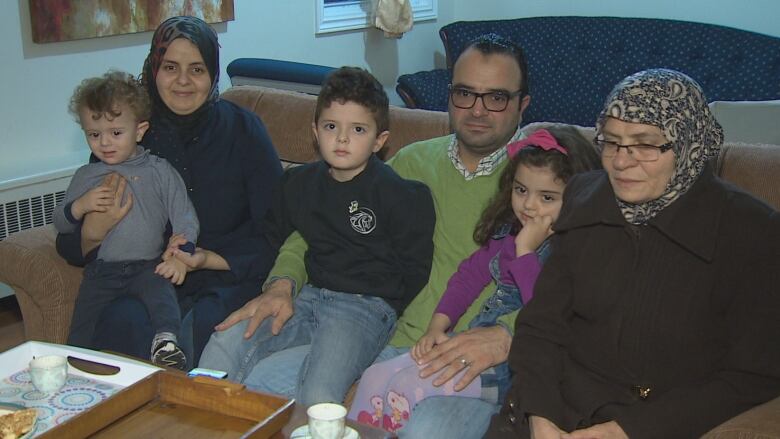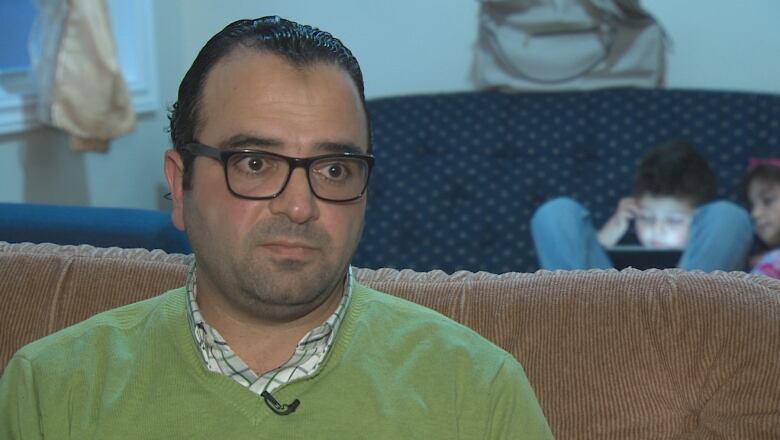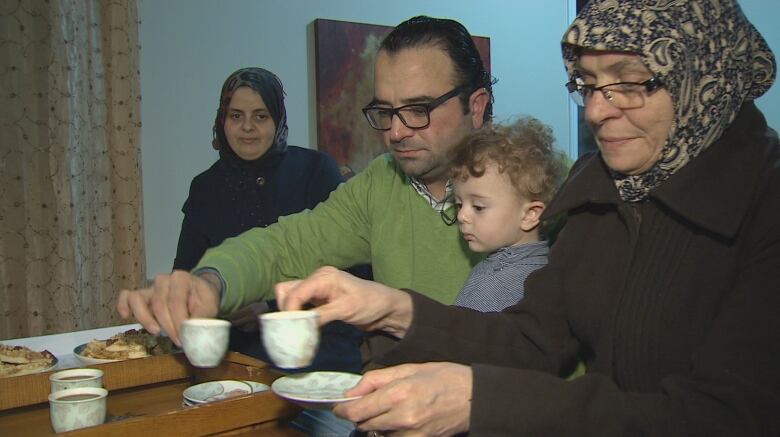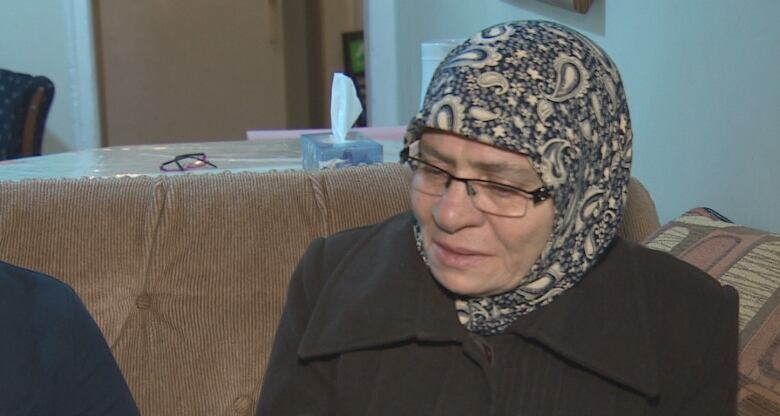A Syrian newcomer stays strong: 'I did not cry in front of them'
Mohammad Bakhash and his family weather a year of change as they settle into Canadian life

When his plane touched down in Fredericton last winter, Mohammad Bakhash readied himself for tremendous change.
Sure enough, itdid not take long before the first cultural differences caused a commotion for the Syrian refugee and his family.
Getting into a car after their arrival, his children were afraid of the car seats that settlement workers wanted them to use.
- Mouhamad Al Darwich becomes Fredericton's 1st Syrian hockey player
- 'We are under pressure now': Syrians search for jobs
- Syrian tailor opens own shop in Fredericton
"When they put them in the car, and they want to put the seatbelt on, my children start crying," he said.
"'Oh, Dad, what do they want? We want to be with you.'
"It was a new thing for us."
Leaving behind a good life
Bakhash and his family his wife, mother and three children left their native Syria 2 1/2 years ago, seeking refuge in Egypt before moving to Canada in February 2016.
They left behind "a good life," Bakhash said.
He was a sales manager in Damascus, a comfortable job that allowed him to raise his children and support his wife, Ghussoun's, Arabic studies at university.

But everything changed when the revolution started in his hometown of Daraa in 2011.
Teenagers spray-painted a wall with a message that challenged the leadership of President Bashar al-Assad and hinted at a national revolt. In response, government troops entered the town and arrested the youth, enraging the local population.
The conflict in Syria was underway.
Daraa is about 120 kilometres south of the capital Damascus, near the border with Jordan. Bakhash used to drive to Daraa every week to visit his mother and family.
When the war started, the visits stopped. Roadblocks were everywhere and people went to prison for no reason, he said.
In Damascus, anyone from Daraa lived under suspicion of being anti-government.
"That was enough reason to be arrested," he said.
Sought safety in Egypt
In 2013, Bakhash and his brother fled to Egypt with their mother and families. The country closed its borders to Syrians a day later, he said.
When the paperwork came through for the family to go to Canada, "we were lucky that we were chosen," he said.
Since December 2015, New Brunswick has takenin 1,554 Syrian refugees. About 600 are school-age children, and604 are working-age adults.
Around 1,400, including Bakhash and his family, depend on support from the federal government. Another 128 are privately sponsored by community groups and individuals.
The refugees receive financial aid from the government and their sponsors for one year. If they are not employed after the first year, they can apply for provincial social assistance.

But money is only a small part of settling into a new life, said Bakhash.
"The big challenge was how to keep the strength in front of my family," he said.
"I have been here for nine months, but I did not cry in front of any of them.
"I have to be the strong one because I am the centre person. If I am weak that will be our condition."
Bakhash said he and his family had never seen a winter before moving to Canada.
'I am not here for tourism, I am not here for education. I am here to stay.'- Mohammad Bakhash
They did not know how to take the bus to go to the store or visit a doctor. The only person he knew in Canada, a cousin, lived in Edmonton.
Worst of all, his brother remained in Egypt, he said. His family's paperwork is still being processed.
Bakhash said itwould have been easy to move to Edmonton where the family had a support system.
But that was not an option, so he made a choice.
"Day by day, I decided to go ahead and said to myself that I had to be settled in this country," he said.
"I am not here for tourism, I am not here for education. I am here to stay. I am here to live here. So I have to build all my choices according to this idea."
Finding home again
Bakhash quickly learned they weren't alone.
In the months leading up to the arrival of the Syrian newcomers, the Multicultural Association of Fredericton was enlisting volunteers to help the families adjust.
They helped the Bakhash family with everything from understanding the bus system, to setting up online payments for his power and Internet bills.
The volunteers, who have now become their friends, even researched university courses he could take in the future.
Fredericton started feeling like home, he said.

"They surrounded me with friendly feelings that you are not alone, 'You are missing your family but we will do our best, not just to help you but to feel that you are not alone,'" he said.
Grateful for the warm welcome, Bakhash has made an effort to meet Canadians.
When he had to buy a car, he learned that the car dealer's wife was ill. He bought her flowers and delivered them to their house.
The woman now teaches Bakhash's mother English, he said.
"The people who decided to bring us to this country, they didn't decide that just to show us Canada," he said.
"We have to show them that we deserve to be their real partners
"We have to do all what we can do, we have to do our best to prove in every moment that we are here to build this country with you, hand by hand and shoulder to shoulder."
Welcoming new Syrians
It's been nine months since the family arrived.
Bakhash found employment as a settlement worker and translator for the multicultural association. He still wants to go back to sales when his English improves.
His son,Ali, six, goes to school. Their daughter, Gana, five, is in kindergarten. The toddler, Zid, remains at home.
His wife, Ghussoun, just passed her driver's exam, a step not often taken in Syria.
Bakhash hopes she can go back to university too, one day.
Now, when he picks up refugees at the airport, as part of his job, he knows what to say.
"You are asking yourself, 'Could we drive our own cars? Could we move as easy as this person?'" Bakhash said.
"I want you to be sure that you will be much better than me."












_(720p).jpg)


 OFFICIAL HD MUSIC VIDEO.jpg)
.jpg)



























































































